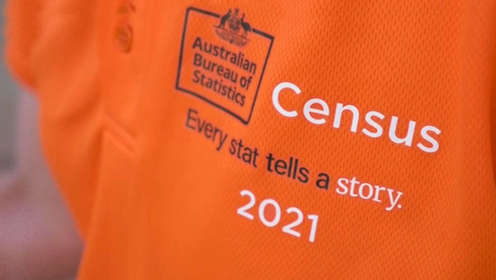Australians are more millennial, multilingual and less religious: what the census reveals
- Written by Peter Martin, Visiting Fellow, Crawford School of Public Policy, Australian National University

Census data to be released Tuesday[1] shows Australia changing rapidly before COVID, gaining an extra one million residents from overseas in the past five years, almost all of them in the three years before borders were closed.
For the first time since the question has been asked in the census, more than half of Australia’s residents (51.5%) report being either born overseas or having an overseas-born parent.
More than one quarter of the one million new arrivals have come from India or Nepal.
The census shows so-called millennials (born between 1981 and 1995) are on the cusp of displacing baby boomers as Australia’s dominant generation.
Although the number of baby boomers (born between 1946 and 1965) has changed little, as a proportion of the population boomers have fallen from 25.4% in 2011 to 21.5%. Millennials have climbed from 20.4% to level pegging at 21.5%.
The changes are reflected in the answer to the question about religion, the only non-compulsory question in the census. Almost 40% of the population identified as having no religion, up from 30% in 2016, and 22% in 2011.
Read more: How well off you are depends on who you are. Comparing the lives of Australia's Millennials, Gen-Xers and Baby Boomers[2]
Whereas 47% of millennials identify as having no religion, only 31% of boomers fail to identify with a faith. Nearly 60% of boomers are Christian, compared to 30% of millennials.
The share of the population identifying as Christian has slipped from 52% to 44%. Other religions are growing, but remain small by comparison. Hinduism climbed from 1.9% of the population in 2016 to 2.7%. Islam climbed from 2.6% to 3.2%.
The five-yearly snapshot
Conducted every five years since 1961, and before that less often from 1911, and asking questions of every Australian household, the census provides information about the ways society is changing that couldn’t be obtained in any other way.
In the past five years the number of people who use a language other than English at home has climbed 792,000 to more than 5.6 million. 852,000 Australian residents identify as not speaking English well or at all.
Mandarin remains the most common language other than English used at home, used by 685,300 people, followed by Arabic with 367,200 people.
The real value is in the detail
The real value of the census is in the locational details. The information released on Tuesday will identify locations with any characteristic that needs particular services, such as the areas with more people who identify as not speaking English well or at all. It will also show which parts of Australia are growing in population and which parts are shrinking.
The broad-brush information released on Monday showed the number of single-parent families had climbed past one million. The information released on Tuesday will identify the suburbs and towns in which they live.
The information released on Monday showed the overall proportion of Australians owning their homes was little changed. The information released on Tuesday will report those proportions by age group and city.
New questions
Two new separate questions in the 2021 census ask about service in defence forces and long-term health conditions.
One quarter of veterans are aged 65-74, reflecting conscription during the Vietnam War.
More than two million Australians suffer long-term mental health conditions; more than two million suffer arthritis; and more than two million suffer asthma.
Tuesday’s figures will offer more detail on the locations of sufferers and details such as their income and occupations, as well as details such as whether those who’ve served in defence were conscripts, serving in Vietnam.
Saved from the axe
Seven years ago the Australian Bureau of Statistics tried to axe[3] the five-yearly census, making it 10-yearly - as in the United Kingdom and the United States - to save money.
The outcry from planners and researchers who relied on the census resulted in the bureau being given an extra A$250 million[4] to ensure it continued.
Tuesday’s is the first of three census data releases. In October, the bureau will release information about education and employment and travel to work.
Early next year it will release location-specific socio-economic information and estimates of homelessness.
References
- ^ Tuesday (www.abs.gov.au)
- ^ How well off you are depends on who you are. Comparing the lives of Australia's Millennials, Gen-Xers and Baby Boomers (theconversation.com)
- ^ axe (www.smh.com.au)
- ^ A$250 million (www.smh.com.au)
Authors: Peter Martin, Visiting Fellow, Crawford School of Public Policy, Australian National University







